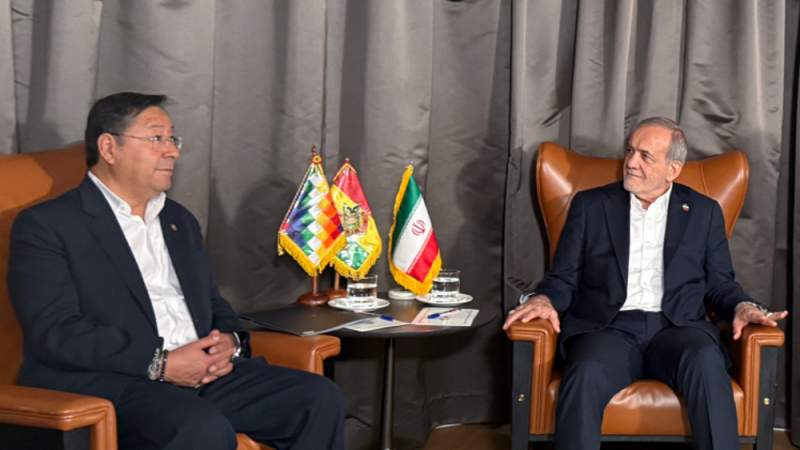Pezeshkian: Iran ‘Fully Prepared’ for Any Scenario If Snapback Triggered

News - Middle East: President Masoud Pezeshkian says Iran is fully prepared for any scenario if European powers proceed with reinstating UN sanctions through the so-called snapback mechanism, and warned that diplomatic dialogue would be meaningless under renewed sanctions.
In a meeting with his Bolivian counterpart Luis Arce Catacora on the sidelines of the UN General Assembly in New York Thursday, Pezeshkian stated that Iran hoped the snapback mechanism would not be triggered.
“We hope the snapback mechanism will not be triggered, but if it is, Iran’s interaction with the international community will be proportional to the new situation,” he said.
On August 28, Britain, France, and Germany, as signatories to the 2015 nuclear deal (JCPOA), notified the UN Security Council that they had invoked the so-called snapback mechanism, a 30-day process to restore all UN sanctions against Iran, alleging Iran’s non-compliance with the deal.
The move followed a vote on Friday in which the UN Security Council rejected a draft resolution that would have permanently lifted the nuclear-related sanctions. Unless a new agreement is reached, the sanctions will be automatically re-imposed by September 28.
President Pezeshkian pointed to the unilateral policies of the United States, noting that such approaches target not only Iran but all countries that refuse to align with American agendas.
“In these conditions, countries seeking independence must enhance their scientific and technical capabilities to powerfully safeguard their national sovereignty and interests,” he said.
The Iranian president also warned that any reinstatement of sanctions would render negotiations meaningless. “Diplomatic dialogue will have no meaning if the European troika reinstates the sanctions against Tehran,” he said.
Elsewhere in his remarks, the Iranian president expressed appreciation for Bolivia's cooperation with Iran in various periods and noted that the future development of relations between Tehran and La Paz depends on the shared determination of both nations' senior officials.
“There exists firm determination on the part of the Islamic Republic of Iran, and undoubtedly the policy direction of Bolivian officials will play a decisive role in shaping future cooperation,” he added.
The Bolivian president, for his part, characterized US warmongering policies, particularly in the Caribbean region, as a threat to international peace and security.
He praised Iran's “positive and constructive” presence in Latin America and expressed his country's desire to maintain and deepen friendly relations and expand bilateral cooperation across various fields.
Source: Press TV
-
12:08
Zionist Channel 12: Unions agreed to block the transfer of weapons and military equipment to “Israel” and to demand a halt to all shipments bound for Israel including civilian goods
12:08
Zionist Channel 12: An emergency meeting was held at Genoa port bringing together dockworkers’ unions from across Europe to coordinate a unified policy against Israel
12:08
Zionist Channel 12: Workers at Genoa port in Italy staged a strike and protested inside the port, forcing the ship to return without its cargo
12:05
Zionist Channel 12: Dockworkers in Italy refused to load containers onto a cargo ship belonging to “Zim” last Saturday
11:37
Demonstrations and marches held in European and Arab cities in solidarity with Gaza and denouncing the Israeli attack on the Global Freedom Flotilla





